Fleurs du Mal Magazine


Or see the index
Carina vd
Walt
luchtalarm
plotseling & ook niet
telkens weer opnieuw om 12 uur
stoppen mijn vingers met typen
beginnen hun tippen te prikken
een boos verschrikt geloei
boort door mijn hoofd
van dichtbij, van verder &
van alle kanten uit de stad
Ik wroet in mijn ingewanden:
met een Joods Roodkapje, vluchtend voor de SS-soldaten
met een gloeiend Viëtnamees meisje, naakt voor een napalmbom uit
met een Palestijnse jongen, onderweg naar zijn oma omgekomen in een autobomaanslag
met de onschuld van de kindsoldaten – Kadago – tot wolven getraind in de DR Congo
met Peace & Mpo & Lerato voor de kogels van de angstige heks ApartheidsAfrikaans.
de akelige aanzwellende toon stoot
een klont zuur op tegen mijn tanden
zodat ik moet slikken tegen
de krop in mijn keel
de oproep naar terug in
kelders onthoofdt me
ik word een & al lijf
oogst alleen maar angst
Ik wroet in mijn ingewanden
met een gierende aarde die haar miskende moederschap brullend terugeist:
een hongersnood in Soedan, waar een kindje eerbiedig buigt voor haar gulzige gier
een tsunamigolf, vraatzuchtig met een drijvend groepje Japanse klasgenootjes
een aardbeving, die duizenden Chinese scholiertjes 80 uren stof laat eten –
& dan, onwillig, eentje teruggeeft.
Carina van der Walt
fleursdumal.nl magazine
More in: Archive W-X, Carina van der Walt, Walt, Carina van der
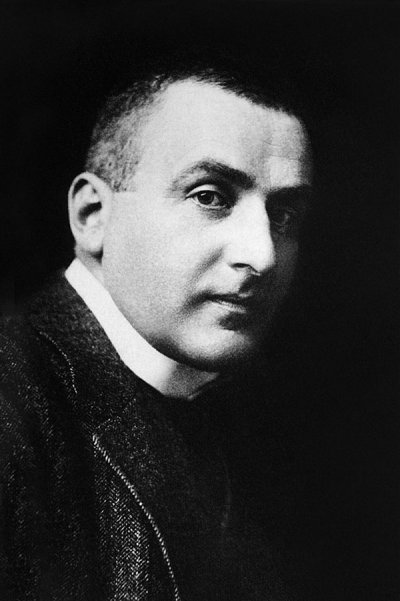
Frank Wedekind
(1864-1918)
Wegweiser
Zum Wassertrinker bin ich nicht geboren,
Das kann euch meine edle Muse zeigen;
Sie singt beim Wein und fällt in tiefes Schweigen,
Wenn sich der letzte Schluck im Bauch verloren.
Dem Wasser hab ich ew’gen Haß geschworen,
Weil ihm der Zauberdünste keiner eigen,
Die traumschwer aus dem dunklen Becher steigen,
Den ich zum Weiser mir des Wegs erkoren.
Er ist ein gar verständiger Geselle,
Er drängt direkt mich zu des Tempels Schwelle
Und öffnet meinem Blick die dunklen Türen.
Im Taumel tapp ich nach der heiligen Zelle
Und muß des Ortes Weihe nur verspüren,
Dann ist’s kein Kunststück mehr, mich zu verführen.
Frank Wedekind poetry
kempis.nl poetry magazine
More in: Archive W-X, Frank Wedekind
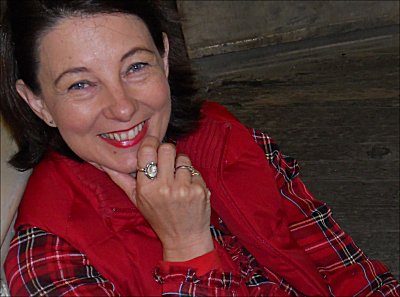
Carina van der Walt
vragen
wat mag ik vragen
mag ik vragen
wat is uw naam
wanneer gaan we iets doen
waar zullen we afspreken
waar zijn we aan begonnen
wat mag ik zeggen
mag ik zeggen
voor u ben ik nog zonder naam
nu is niet goed, misschien later
hier is niet goed, misschien daar
we zeggen te laat hoe nu verder
of is het beter om te zwijgen
mag ik iets voorstellen
iets zoals
laten we tutoyeren
laten we geen duidelijke tijd afspreken
laten we geen aantoonbare plek bedenken
misschien kunnen we altijd opnieuw beginnen
mag ik iets achterhouden
iets onthouden zoals
tussen ons mag dit geen naam meer hebben
er is geen tijd om te beminnen en geen tijd om te haten
misschien verzin ik een open raam om iets te vertellen:
wat is was er allang en wat zal zijn is alweer voorbij
Carina van der Walt (1960) werd geboren in Welkom Zuid-Afrika en studeerde Nederlands en Afrikaans. In 2003 kwam zij via een uitwisselingsprogramma op de UVT voor haar master in vergelijkend poëzie (2004). Als dichteres publiceerde zij de bundel Seeverse (2000, in eigen beheer) en Woorden over Beelden (dec. 2012, Uitgeverij Smit van 1876, Venlo). Haar Ars poetica is gepubliceerd in Literator (april 2012), een gerenommeerd Zuid-Afrikaanse literaire tijdschrift. Vier van haar gedichten waren afgelopen najaar tegelijkertijd tentoongesteld in Tilburg (Twiet Twiet) en Johannesburg (Melville Poetry Festival). In het voorjaar van 2013 zullen van haar gedichten opgenomen worden in twee bloemlezingen in Zuid-Afrika: Afrikaanse gedichten in Nuwe Stemme 5 en Nederlandse gedichten in Theater van de Verloren Tijd.
Carina van der Walt poetry
kempis.nl poetry magazine
More in: Archive W-X, Walt, Carina van der
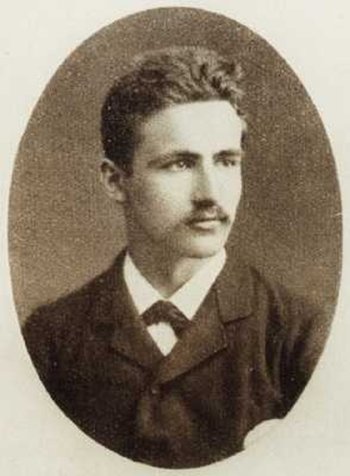
Frank Wedekind
(1864-1918)
An Elka
Elka, länger kann ich mich nicht halten,
Meine Sinne toben allzu wild;
Und in allen weiblichen Gestalten
Seh ich schon dein Götterbild!
Auch im Traum bist du mir schon erschienen,
Dich entkleidend; oh wie ward mir da!
Schwindlig ward mir hinter den Gardinen,
Als ich deinen Busen sah.
Meine beiden Knie wurden brüchig,
Von der Stirne triefte mir das Fett.
Als das Hemd du abgetan, da schlich ich
Wonneschauernd an dein Bett.
Mach, daß dieser Traum sich bald erfülle;
Mach, erhabne Königin,
Daß bei dir ich vor Behagen brülle,
Nicht vor Wut, weil ich dir ferne bin.
Frank Wedekind poetry
kempis.nl poetry magazine
More in: Archive W-X, Frank Wedekind
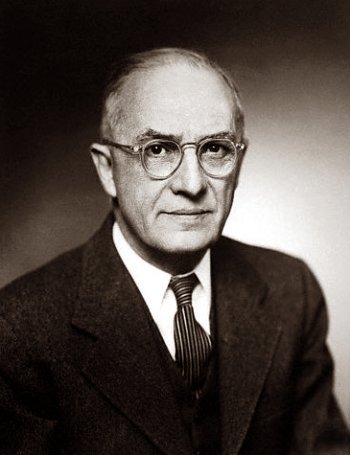
William Carlos Williams
(1883-1963)
This Is Just to Say
I have eaten
the plums
that were in
the icebox
and which
you were probably
saving
for breakfast
Forgive me
they were delicious
so sweet
and so cold
William Carlos Williams poetry
kempis.nl poetry magazine
More in: Archive W-X
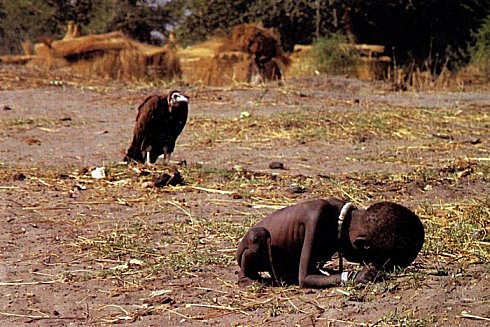
photo: Kevin Carter
laaste woorde aan Kevin Carter
o god van grond
my uur het gekom
my dae was minder as gras
drie jaar van honger en dors
verlatenheid alom
sy wat my gebaar het is geslag
hy wat my verwek het is gejag
bang dag in dag uit en elke nag
Anyanya
slang venyn
alles pyn
alles dof
o god van grond
ek eet gras en stof
u engel se wraak
sy laaste waak
Carina van der Walt
fleursdumal.nl magazine
More in: Archive W-X, Carina van der Walt, FDM in Africa, Walt, Carina van der
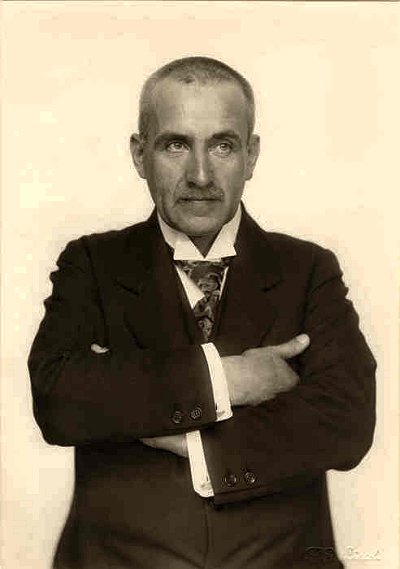
Frank Wedekind
(1864-1918
Brigitte B.
Ein junges Mädchen kam nach Baden,
Brigitte B. war sie genannt,
Fand Stellung dort in einem Laden,
Wo sie gut angeschrieben stand.
Die Dame, schon ein wenig älter,
War dem Geschäfte zugetan,
Der Herr ein höherer Angestellter
Der königlichen Eisenbahn.
Die Dame sagt nun eines Tages,
Wie man zur Nacht gegessen hat:
»Nimm dies Paket, mein Kind, und trag es
Zu der Baronin vor der Stadt.«
Auf diesem Wege traf Brigitte
Jedoch ein Individium,
Das hat an sie nur eine Bitte,
Wenn nicht, dann bringe er sich um.
Brigitte, völlig unerfahren,
Gab sich ihm mehr aus Mitleid hin.
Drauf ging er fort mit ihren Waren
Und ließ sie in der Lage drin.
Sie konnt es anfangs gar nicht fassen,
Dann lief sie heulend und gestand,
Daß sie sich hat verführen lassen,
Was die Madam begreiflich fand.
Daß aber dabei die Tournüre
Für die Baronin vor der Stadt
Gestohlen worden sei, das schnüre
Das Herz ihr ab, sie hab sie satt.
Brigitte warf sich vor ihr nieder,
Sie sei gewiß nicht mehr so dumm;
Den Abend aber schlief sie wieder
Bei ihrem Individium.
Und als die Herrschaft dann um Pfingsten
Ausflog mit dem Gesangverein,
Lud sie ihn ohne die geringsten
Bedenken abends zu sich ein.
Sofort ließ er sich alles zeigen,
Den Schreibtisch und den Kassenschrank,
Macht die Papiere sich zu eigen
Und zollt ihr nicht mal mehr den Dank.
Brigitte, als sie nun gesehen,
Was ihr Geliebter angericht’,
Entwich auf unhörbaren Zehen
Dem Ehepaar aus dem Gesicht.
Vorgestern hat man sie gefangen,
Es läßt sich nicht erzählen, wo;
Dem Jüngling, der die Tat begangen,
Dem ging es gestern ebenso.
Frank Wedekind poetry
kempis.nl poetry magazine
More in: Archive W-X, Frank Wedekind
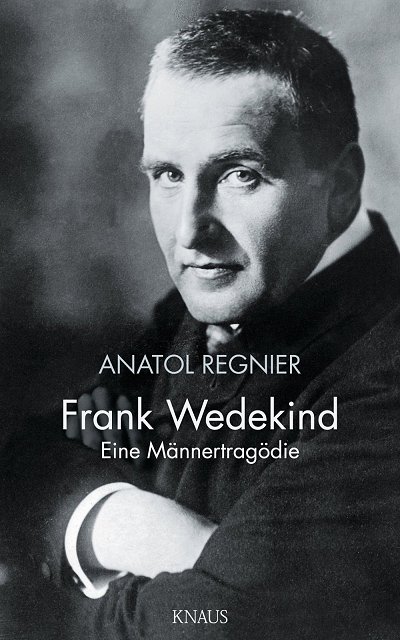
Frank Wedekind
(1864-1918)
Ilse
Ich war ein Kind von fünfzehn Jahren,
Ein reines unschuldsvolles Kind,
Als ich zum erstenmal erfahren,
Wie süß der Liebe Freuden sind.
Er nahm mich um den Leib und lachte
Und flüsterte: O welch ein Glück!
Und dabei bog er sachte, sachte
Den Kopf mir auf das Pfühl zurück.
Seit jenem Tag lieb ich sie alle,
Des Lebens schönster Lenz ist mein;
Und wenn ich keinem mehr gefalle,
Dann will ich gern begraben sein.
Frank Wedekind poetry
kempis.nl poetry magazine
More in: Archive W-X, Frank Wedekind
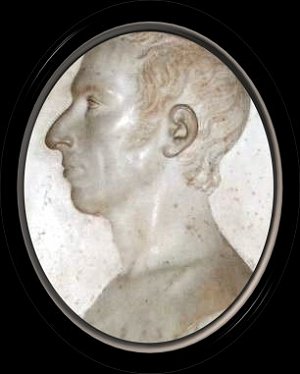
Charles Wolfe
(1791-1823)
TO MARY
F I had thought thou couldst have died,
I might not weep for thee;
But I forgot, when by thy side,
That thou couldst mortal be:
It never through my mind had past
The time would e’er be o’er,
And I on thee should look my last,
And thou shouldst smile no more!
And still upon that face I look,
And think ’twill smile again;
And still the thought I will not brook,
That I must look in vain.
But when I speak–thou dost not say
What thou ne’er left’st unsaid;
And now I feel, as well I may,
Sweet Mary, thou art dead!
If thou wouldst stay, e’en as thou art,
All cold and all serene–
I still might press thy silent heart,
And where they smiles have been.
While e’en thy chill, bleak corse I have,
Thou seemest still mine own;
But there–I lay thee on thy grave,
And I am now alone!
I do not think, where’er thou art,
Thou hast forgotten me;
And I, perhaps, may soothe this heart
In thinking too of thee:
Yet there was round thee such a dawn
Of light ne’er seen before,
As fancy never could have drawn,
And never can restore!
Charles Wolfe poetry
kempis.nl poetry magazine
More in: Archive W-X
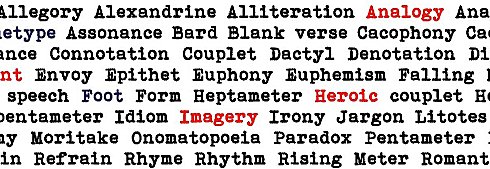
Oscar Wilde
(1854 – 1900)
Flower of Love
Sweet, I blame you not, for mine the fault was, had I not been made of common
clay
I had climbed the higher heights unclimbed yet, seen the fuller air, the
larger day.
From the wildness of my wasted passion I had struck a better, clearer song,
Lit some lighter light of freer freedom, battled with some Hydra-headed wrong.
Had my lips been smitten into music by the kisses that but made them bleed,
You had walked with Bice and the angels on that verdant and enamelled meed.
I had trod the road which Dante treading saw the suns of seven circles shine,
Ay! perchance had seen the heavens opening, as they opened to the Florentine.
And the mighty nations would have crowned me, who am crownless now and without name,
And some orient dawn had found me kneeling on the threshold of the House of Fame.
I had sat within that marble circle where the oldest bard is as the young,
And the pipe is ever dropping honey, and the lyre’s strings are ever strung.
Keats had lifted up his hymeneal curls from out the poppy-seeded wine,
With ambrosial mouth had kissed my forehead, clasped the hand of noble love in mine.
And at springtide, when the apple-blossoms brush the burnished bosom of the dove,
Two young lovers lying in an orchard would have read the story of our love;
Would have read the legend of my passion, known the bitter secret of my heart,
Kissed as we have kissed, but never parted as we two are fated now to part.
For the crimson flower of our life is eaten by the cankerworm of truth,
And no hand can gather up the fallen withered petals of the rose of youth.
Yet I am not sorry that I loved you -ah! what else had I a boy to do? –
For the hungry teeth of time devour, and the silent-footed years pursue.
Rudderless, we drift athwart a tempest, and when once the storm of youth is past,
Without lyre, without lute or chorus, Death the silent pilot comes at last.
And within the grave there is no pleasure, for the blindworm battens on the root,
And Desire shudders into ashes, and the tree of Passion bears no fruit.
Ah! what else had I to do but love you? God’s own mother was less dear to me,
And less dear the Cytheraean rising like an argent lily from the sea.
I have made my choice, have lived my poems, and, though youth is gone in wasted days,
I have found the lover’s crown of myrtle better than the poet’s crown of bays.
Oscar Wilde poetry
kempis.nl poetry magazin
More in: Archive W-X, Wilde, Oscar
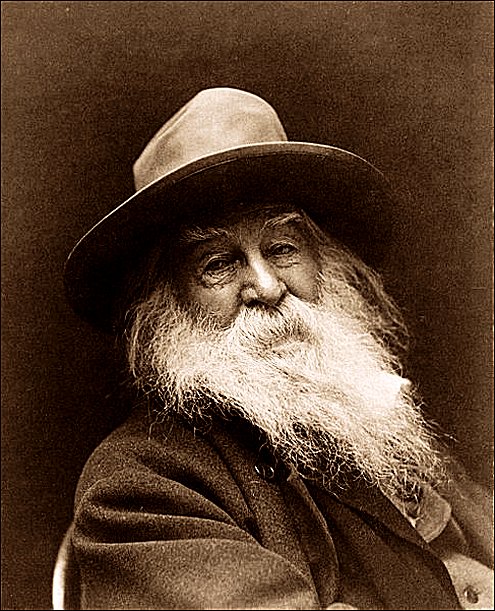
Walt Whitman
(1819–1892)
A Song
Come, I will make the continent indissoluble;
I will make the most splendid race the sun ever yet shone upon;
I will make divine magnetic lands,
With the love of comrades,
With the life-long love of comrades.
I will plant companionship thick as trees along all the rivers of
America, and along the shores of the great lakes, and all over
the prairies;
I will make inseparable cities, with their arms about each other’s
necks;
By the love of comrades,
By the manly love of comrades.
For you these, from me, O Democracy, to serve you, ma femme! 10
For you! for you, I am trilling these songs,
In the love of comrades,
In the high-towering love of comrades.
Walt Whitman poetry
kempis.nl poetry magazine
More in: Archive W-X, Whitman, Walt
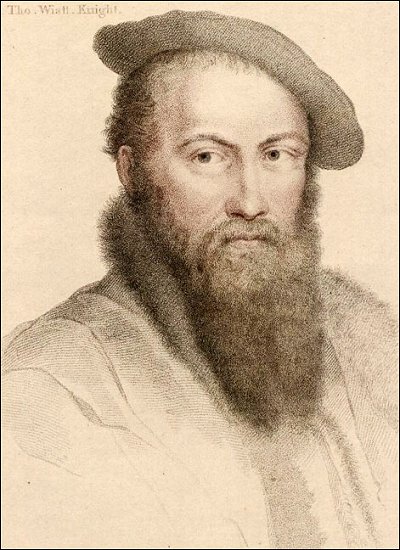
Thomas Wyatt
(1503 – 1542)
As for them all I do not thus lament
As for them all I do not thus lament,
But as of right my reason doth me bind;
But as the most doth all their deaths repent,
Even so do I by force of mourning mind.
Some say, ‘Rochford, haddest thou been not so proud,
For thy great wit each man would thee bemoan,
Since as it is so, many cry aloud
It is great loss that thou art dead and gone.’
Ah! Norris, Norris, my tears begin to run
To think what hap did thee so lead or guide
Whereby thou hast both thee and thine undone
That is bewailed in court of every side;
In place also where thou hast never been
Both man and child doth piteously thee moan.
They say, ‘Alas, thou art far overseen
By thine offences to be thus deat and gone.’
Ah! Weston, Weston, that pleasant was and young,
In active things who might with thee compare?
All words accept that thou diddest speak with tongue,
So well esteemed with each where thou diddest fare.
And we that now in court doth lead our life
Most part in mind doth thee lament and moan;
But that thy faults we daily hear so rife,
All we should weep that thou are dead and gone.
Ah! Mark, what moan should I for thee make more,
Since that thy death thou hast deserved best,
Save only that mine eye is forced sore
With piteous plaint to moan thee with the rest?
A time thou haddest above thy poor degree,
The fall whereof thy friends may well bemoan:
A rotten twig upon so high a tree
Hath slipped thy hold, and thou art dead and gone.
And thus farewell each one in hearty wise!
The axe is home, your heads be in the street;
The trickling tears doth fall so from my eyes
I scarce may write, my paper is so wet.
But what can hope when death hath played his part,
Though nature’s course will thus lament and moan?
Leave sobs therefore, and every Christian heart
Pray for the souls of those be dead and gone.
Thomas Wyatt poetry
kempis.nl poetry magazine
More in: Archive W-X
Thank you for reading Fleurs du Mal - magazine for art & literature